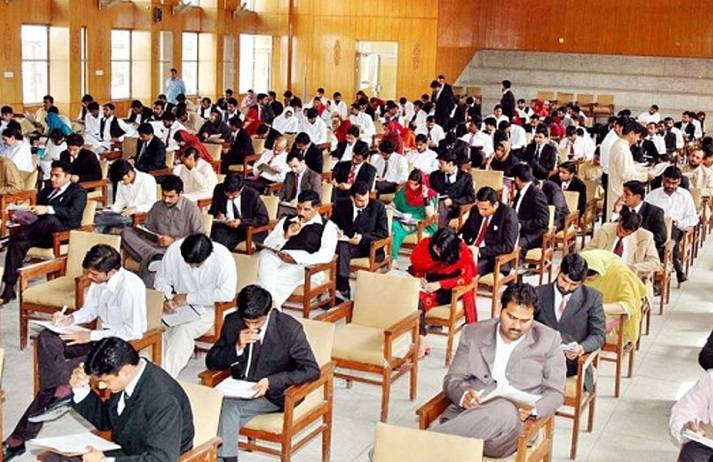
‘Success has many fathers, but failure is an orphan’. A virtual but cheap demonstration of this proverb is easy to witness these days. Scroll your Facebook, Twitter, and other social media platforms, it seems the season of selling success stories for commercial purposes, both by individuals and by the so-called academies is trending owing to the final recommendations of the federal public service commission for central superior services. With a little search, one would easily identify many such private academies proclaiming mentorship for qualified candidates. But as pointed out earlier, no one owns thousands of failed candidates. As if they were banned from these academies. After all, the market is saturated with new potential candidates for the next harvesting.
This short memo is a mere attempt to direct young graduates to put their efforts in the right direction and seek early placement without having an experience of failure; most of the young graduates spend years in commercial academies which are primarily in major cities; Lahore, Islamabad, and Karachi, where the number of years spent and financial cost incurred, simply outweighs the success after a prolonged series of failures. In other words, the opportunity cost for such success is too high. It also attempts to guide many not to be looted by such self-proclaimed commercial academies who sell success stories of few and pay lip service to thousands of those who never get through. A simple study would be adequate to check variance and standard deviation of the number of enrollment in these money-making machines versus the number of successful candidates in such exams.
Gone are the days when carrying, “Exploring the World of English” was a hallmark for one’s preparations for Central Superior Services exams. The market is full of both local and foreign authored books. There are magazines, the bundle of notes, and other resource materials, sometimes as easy as a click away on personal computers or smartphones. This bombardment of information and crony capitalist tactics by the commercial academies to attract new aspirants has led many into confusion followed by a series of failures. The core spirit of such exams is not based on advance-preparations the way we are witnessing today. A traditional examiner would fail all such candidates who are replicating the same answers of open-ended, opinion-based questions in most of the compulsory and some of the elective papers. Consequently, the majority fails in scoring good grades. After all, it’s a game of competitive scoring and marking too.
The young graduates should have multiple options and shouldn’t rely on one front only. For instance, preparation for foreign scholarships, competitive exams, and induction in various federal and provincial agencies have an almost similar syllabus. Thanks to the change in the curricula of CSS, the general ability is equally tested in Graduate Record Examination (GRE, GMAT, and GAT etc.), unlike in the past if one is preparing for CSS, one may attempt such admission tests too. So is the case with English Composition which is equally important in all of the above-mentioned exams. The only essential subject whose preparation may not be directly useful for the overseas admission process is Pakistan Studies or Pakistan Affairs. However, Pakistan Studies is not only tested in every placement within Pakistan but it might facilitate one in different cultural activities abroad in case one gets admission for higher studies.
Having these three major subjects covered, it makes little sense to put all efforts into one dimension; the CSS. Instead, any of the mentioned fields offer early success to many. Simultaneously, a young graduate must not be ignorant of one paper-based induction in civil aviation, security, defense, intelligence, and law enforcement agencies. Rather a piece of sincere advice for them is to take these exams as a real mock for major exams of CSS and PMS. One may object or be surprised why mock? Recently it has been observed that mock interviews and mock tests are new gambits of earlier mentioned commercial academies whose purpose is always to make money. Against each mock activity, the charges are more than that of any public sector university’s semester fee for a regular programme. This is extortion.
In a country where the majority of the population hardly makes ends meet, such inhuman practices of selling dreams should be reconsidered.
These exams and others for the induction process were designed to test a graduate’s overall ability developed during the years of schooling. Candidates are supposed to be either self-driven or receive guidance from College/University mentors. But students are not driven enough; and counselors not always dedicated enough. Thus the market is ripe for quacks. A race is inevitable among mushrooming commercial academies to grab the market share. Many candidates from backward areas are motivated by the promise of success and therefore provide an additional advantage to the opportunity seekers to profit from this situation. Misguided by others’ stories, thousands of candidates miserably try to follow a ‘prototype', thereby defusing individual learning experience and end up failing the competitive examination.
What should be the alternative way out for success? Well, everyone has unique experience and circumstances. However, one must not be following the crowding-clout created by these academies. Quality material should be used to develop the analytical ability to mold and reshape answers in accordance with the way questions are asked. To do this, commonly circulated notes, outlines, and costly (mis)guidebooks for reproduction in the exam hall need to be avoided.
Different types of magazines - local and foreign - which are copying and plagiarizing original ideas must be avoided in favor of well-reputed authentic sources. An early awareness during undergraduate studies is essential to pay more focus on subjects and topics which are in the syllabus for the CSS. This gives an impetus to teachers too that students are organized and so should be the mentor to deliver at an optimal level. Lastly, hard work is the key to success and 'luck' favours when preparations match the opportunity.
